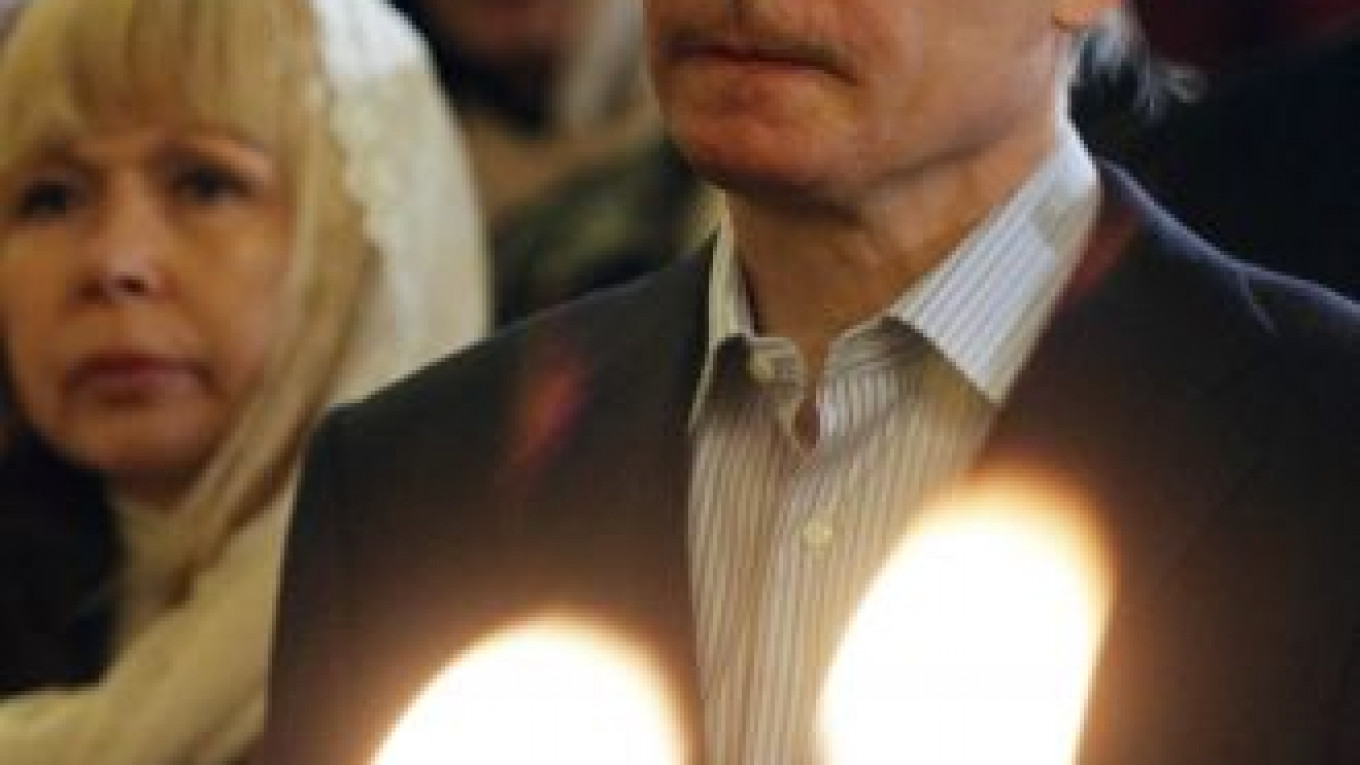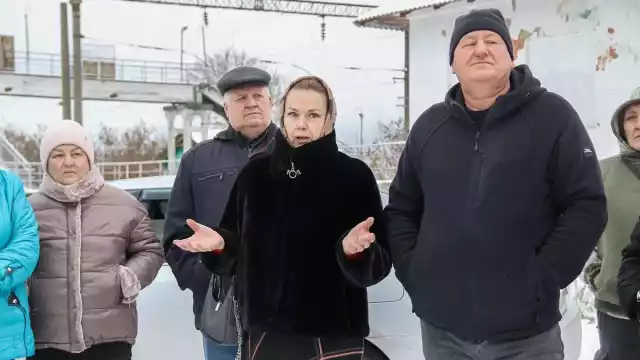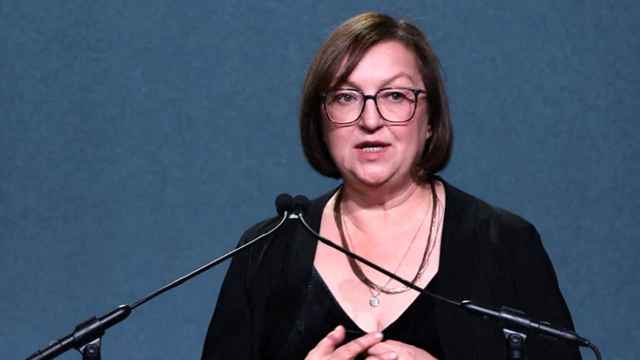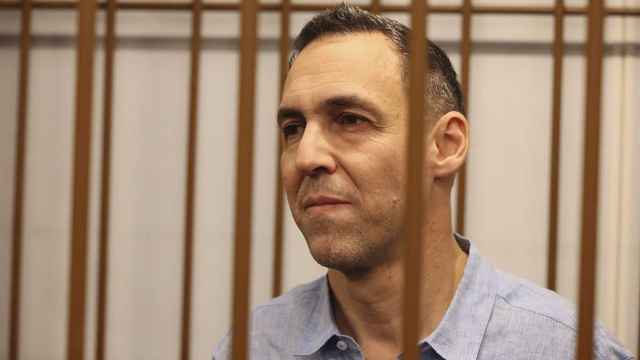The head of the Russian Orthodox Church weighed in on the ongoing political crisis, urging the Kremlin in a Christmas sermon to cooperate with anti-government protesters who rallied in Moscow in tens of thousands last month.
But Patriarch Kirill, a staunch Kremlin supporter, also echoed the government's own rhetoric by warning that exerting too much pressure on the authorities can result in a bloody revolution, like in 1917.
Still, the statement appears to be the latest confirmation that the ruling elite is seeking to talk with the protesters rather than suppress them ahead of the presidential vote in March.
"If something is going on, society must have the right to express its discontent," Kirill said in televised comments to the state-run Rossia-1 television channel, aired on Saturday, when Orthodox Christians celebrated Christmas.
"If the powers that be remain insensitive to expressions of protest, it's a bad sign, a sign that they are incapable of adapting. The authorities must adjust, including to signals from outside … and correct the course," Kirill said.
But he also compared the current crisis to the Russian Revolution when he said, "We destroyed our country … because rightful popular protest was cleverly used by political forces vying for power." He named no names.
Protests have swept the capital and, to a lesser extent, the rest of the country, following the State Duma elections on Dec. 4, in which Prime Minister Vladimir Putin's United Russia clinched a narrow majority. Critics insist that the victory was secured through vote fraud and electoral violations, hundreds of instances of which were reported by observers.
The biggest street protests in the country since 1993 have taken place on Moscow's Bolotnaya Ploshchad, where between 30,000 and 60,000 gathered, and Prospekt Akademika Sakharova, where the crowd was estimated at between 45,000 and 100,000.
Protesters demanded repeat elections and the sacking of Vladimir Churov, head of the Central Elections Commission. The authorities have rejected both demands, but proposed instead to radically soften draconian legislation for registering political parties and presidential candidates — though only after the Kremlin vote on March 4, which Putin is expected to win.
Things have quieted down during the holiday week in the beginning of January, but this is largely seen as the calm before the storm. A new protest rally is scheduled in Moscow for Feb. 4, one month before the presidential election, with some 14,000 having already signed up for the event on its Facebook as of late Monday.
It was the first time that the charismatic Kirill, who combines conservative views with active proselytism, openly spoke on the protests. However, he warned last month against the dangers of social networking sites, which were instrumental in staging the protests.
In a throwback to the church's more expected rhetoric, church spokesman Vsevolod Chaplin also spoke in favor of the protests in to Rusnovosti.ru last week, but said they should focus on promoting Russian nationalism. He also dismissed liberal opposition activists Boris Nemtsov and Garry Kasparov, who were actively involved in the December protests, as "Russophobes."
Kirill's word carries a lot of weight in a country where three-quarters of the populace are self-proclaimed Orthodox Christians, even though most of them lack any religious ardor.
"The Patriarch is an influential figure in society, he has made clear his position on the matter, and the authorities should take it into account," said Viktor Aksyutich, an expert on Russian Orthodox Church.
"His words might sound harsh, but they fit the situation, which is quite grave," Aksyutich told The Moscow Times by telephone Monday.
He added that the church actually has the authority to urge its flock to go against the authorities, if it deems officials harmful to the people.
But Kirill avoided a direct attack on the Kremlin, instead pinning the blame on low-ranking bureaucrats.
"Do people deal with the president or the ministers? They deal with police officers, with utility companies. … It's authorities on this level that harass the simple man," he said.
Kirill also called on the protesters to purge their personal lives of all lies before demanding the same from the authorities.
He ended by saying the church is not taking sides in the conflict because it counts among members "both those who were on the streets and those who the streets protested against."
Indeed, the Christmas mass that Kirill served in Moscow's Christ the Savior Cathedral on Saturday night was attended by President Dmitry Medvedev. Putin, also an open Orthodox believer, went to a different mass in his native St. Petersburg.
A Message from The Moscow Times:
Dear readers,
We are facing unprecedented challenges. Russia's Prosecutor General's Office has designated The Moscow Times as an "undesirable" organization, criminalizing our work and putting our staff at risk of prosecution. This follows our earlier unjust labeling as a "foreign agent."
These actions are direct attempts to silence independent journalism in Russia. The authorities claim our work "discredits the decisions of the Russian leadership." We see things differently: we strive to provide accurate, unbiased reporting on Russia.
We, the journalists of The Moscow Times, refuse to be silenced. But to continue our work, we need your help.
Your support, no matter how small, makes a world of difference. If you can, please support us monthly starting from just $2. It's quick to set up, and every contribution makes a significant impact.
By supporting The Moscow Times, you're defending open, independent journalism in the face of repression. Thank you for standing with us.
Remind me later.






